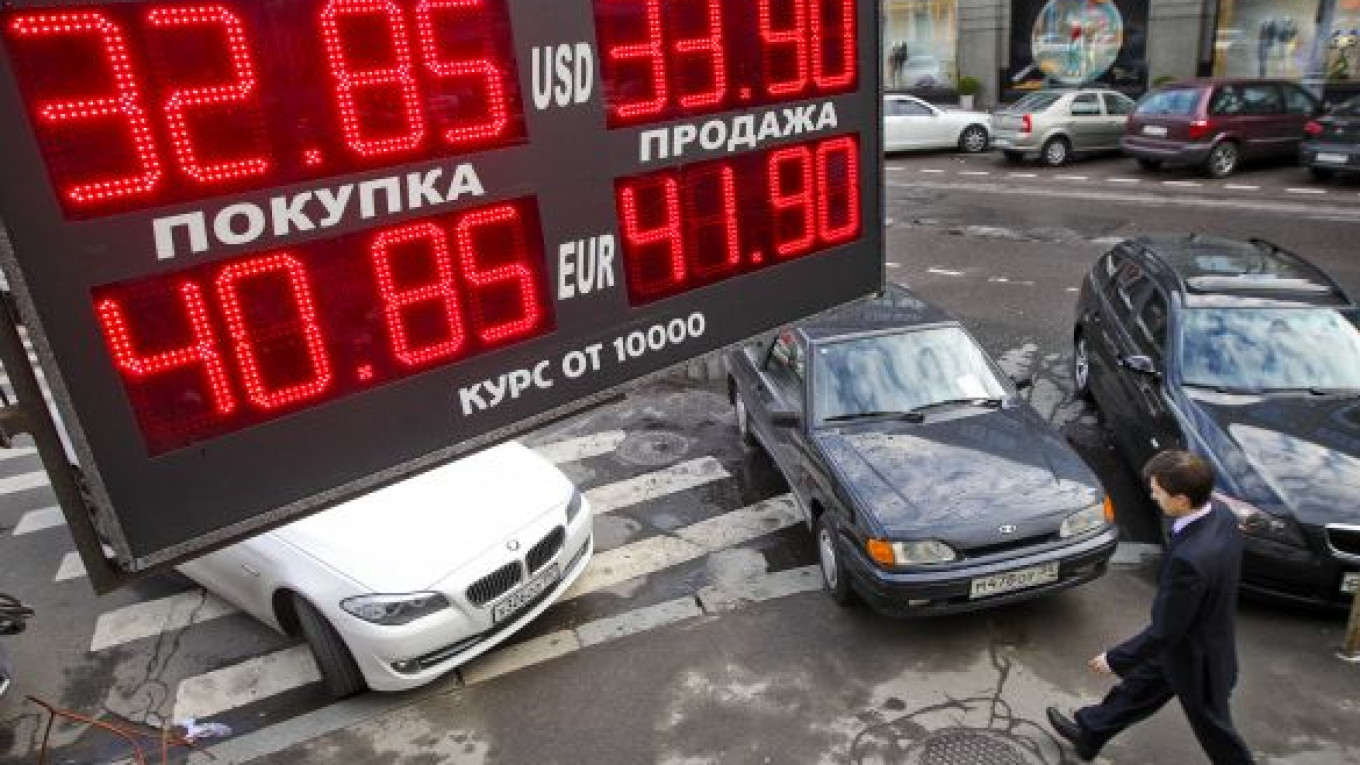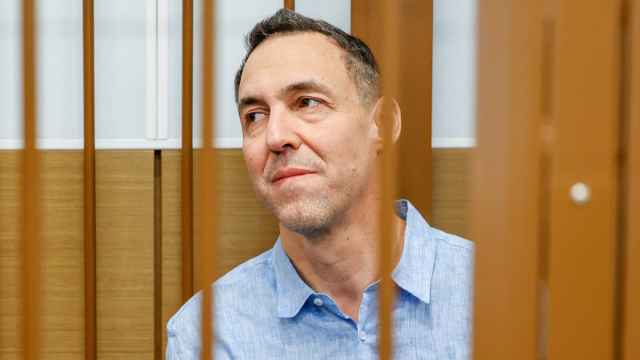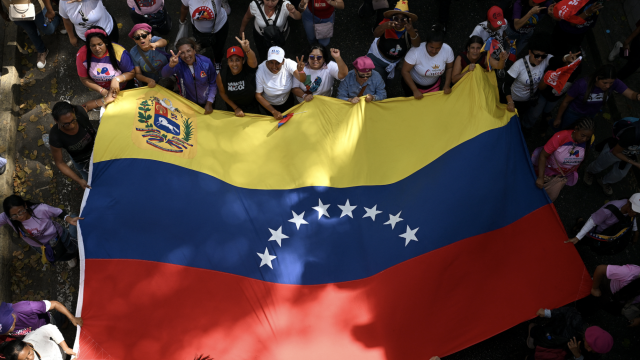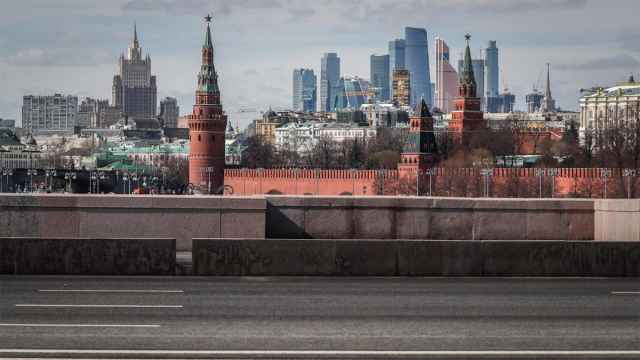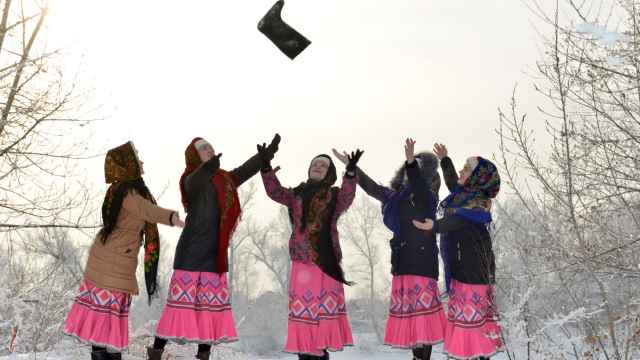A declining exchange rate for the dollar and euro, as well as vacation season, have caused a decline in individual bank deposits in July, though bankers are certain the trend will reverse.
After growing by 2.6 percent in June, personal savings held in banks have declined by 0.1 percent to hit 12.8 trillion rubles ($400 billion) on Aug. 1, according to the Central Bank.
This calculation takes into account a revaluation of hard currency savings, Deputy Central Bank Chairman Mikhail Sukhov told Vedomosti, with the strengthening of the ruble to the euro being the main factor.
"Additionally, vacation season has started, during which Russians are spending more each year on their credit cards, as opposed to paying cash, which leads to a correction of deposit values," Sukhov said, adding that this is a seasonal factor. From the start of this year deposits have increased by 8 percent.
This is the fourth month since the start of 2011 that people are withdrawing more money from banks than they are depositing. In addition to January, when people traditionally withdraw funds they received at the end of the year, there was also a net outflow of deposits in October 2011.
This period last year saw a similar decline in deposit inflows — to 1 percent by Aug. 1 versus 2.3 percent in June. The ruble was also gaining strength versus the dollar and euro at that time, said Olga Byelenkaya, an analyst with Sovlink.
Now, the proportion of hard currency deposits in banks is about 16 percent, she said. The Central Bank does not publish figures about deposits of specific currencies. In July, the exchange rate for the dollar to ruble dropped by 1.9 percent; for the euro by 4.3 percent.
Sberbank, where 47 percent of the country's private savings are held, has the greatest influence on the deposit calculation, Byelenkaya said. In July, deposits at the state lender were down 0.2 percent to 6.06 trillion rubles, according to information published by the bank Tuesday.
July is not the best month for deposits, Sberbank financial director Alexander Morozov said. "People prefer to spend, and at the same time we observe the trend of minor outflows to smaller banks that have an aggressive policy," he said.
Sberbank also saw its corporate deposits decline in July by 1.9 percent.
There was no significant deposit outflow in July for Alfa Bank, said Alexei Korovin, the head of the lenders retail department. But there is a reduction in growth associated with vacation season when people are spending more on their cards, he added. The proportion of hard currency deposits at Alfa Bank is 35 percent, of which euro deposits make up 15 percent, Korovin said.
The picture should improve in August, he said, but "a significant recovery will most likely take place closer to the fall."
Spokespeople for VTB declined to comment. Several of them referred to a ban by the bank's management on speaking to journalists from Vedomosti.
A Message from The Moscow Times:
Dear readers,
We are facing unprecedented challenges. Russia's Prosecutor General's Office has designated The Moscow Times as an "undesirable" organization, criminalizing our work and putting our staff at risk of prosecution. This follows our earlier unjust labeling as a "foreign agent."
These actions are direct attempts to silence independent journalism in Russia. The authorities claim our work "discredits the decisions of the Russian leadership." We see things differently: we strive to provide accurate, unbiased reporting on Russia.
We, the journalists of The Moscow Times, refuse to be silenced. But to continue our work, we need your help.
Your support, no matter how small, makes a world of difference. If you can, please support us monthly starting from just $2. It's quick to set up, and every contribution makes a significant impact.
By supporting The Moscow Times, you're defending open, independent journalism in the face of repression. Thank you for standing with us.
Remind me later.


